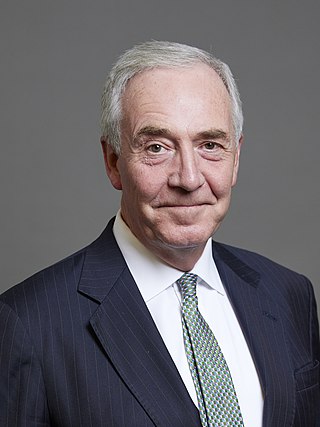
The Children Act 1989 is an Act of Parliament of the United Kingdom that received royal assent on 16 November 1989 and came into substantial force across all three jurisdictions of the United Kingdom on 14 October 1991. In 1995, for the purposes of devolution, the Act was replaced by parallel legislation in Scotland and Northern Ireland. And in 2016, Part III of the Act was replaced in Wales.

The Police (Scotland) Act 1966 was an Act of the Parliament of the United Kingdom.

The Short Titles Act 1892 is an Act of the Parliament of the United Kingdom. It authorised the citation of earlier Acts by short titles and collective titles. It is replaced by the Short Titles Act 1896.

The Short Titles Act 1896 is an Act of the Parliament of the United Kingdom. It replaces the Short Titles Act 1892.
The Prison Commission was a public body of the Government of the United Kingdom established in 1877 and responsible for overseeing the operation of HM Prison Service. It was merged into the Home Office on 1 April 1963 to become the Prisons Department.
The Prison Commission was a public body of the Government of the United Kingdom established in 1877 and responsible for the operation of what is now the Scottish Prison Service. It was renamed the Prison Department in 1928, and was merged with the Scottish Office to become the Scottish Home Department in 1939.
The Independent Reviewer of Terrorism Legislation is an independent person, appointed by the Home Secretary and by the Treasury for a renewable three-year term and tasked with reporting to the Home Secretary and to Parliament on the operation of counter-terrorism law in the UK.

The Statute Law Revision Act 1927 was an Act of the Parliament of the United Kingdom.

The Statute Law Revision Act 1950 is an Act of the Parliament of the United Kingdom.

The Statute Law Revision Act 1953 is an Act of the Parliament of the United Kingdom.

The Statute Law Revision Act 1976 is an act of the Parliament of the United Kingdom.

The Statute Law (Repeals) Act 1981 is an Act of the Parliament of the United Kingdom.

The Statute Law (Repeals) Act 1974 is an act of the Parliament of the United Kingdom.

The Statute Law (Repeals) Act 1975 is an act of the Parliament of the United Kingdom.

The Statute Law (Repeals) Act 1976 is an act of the Parliament of the United Kingdom.

The Statute Law (Repeals) Act 1977 is an Act of the Parliament of the United Kingdom.

The Statute Law (Repeals) Act 1978 is an act of the Parliament of the United Kingdom.

The Statute Law (Repeals) Act 1986 is an Act of the Parliament of the United Kingdom.

The Statute Law (Repeals) Act 1989 is an Act of the Parliament of the United Kingdom.

David William Kinloch Anderson, Baron Anderson of Ipswich, is a British barrister and life peer, who was the Independent Reviewer of Terrorism Legislation in the United Kingdom between 2011 and 2017. On 8 June 2018 it was announced that he would be introduced to the House of Lords as a cross-bench (non-party) working peer. On the same day he was appointed a Knight Commander of the Order of the British Empire (KBE), for services to national security and civil liberties, in the Queen's 2018 Birthday Honours.



